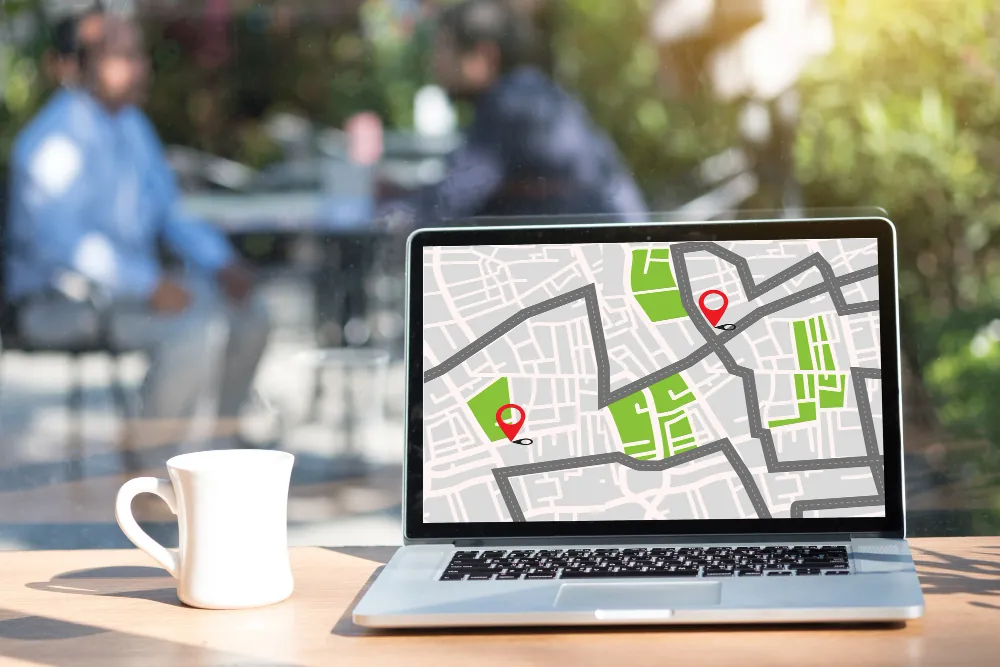
If you’re a business owner looking to enhance your visibility in specific geographic areas, then you’ve come to the right place. It’s crucial for businesses to prioritize local search engine optimization (SEO) to ensure they are reaching their target audience effectively.
Local SEO involves optimizing your online presence to rank higher in localized search results. This is especially important for businesses that rely on foot traffic or target customers in specific areas. Implementing successful local SEO methods may substantially impact your online exposure and eventually bring more people to your business, whether you have a brick-and-mortar store, a service-based firm, or an e-commerce website with a specific target demographic.
In this blog, we will provide you with five essential tips to help you master local SEO and enhance your visibility in specific geographic areas. These tips are tried-and-tested techniques that have been proven to deliver results for businesses of all sizes and in various industries.
Each tip will be accompanied by practical and actionable steps that you can implement right away. We understand the importance of clear guidance and tangible results, which is why our blog will provide you with straightforward instructions and examples to help you navigate through the complexities of local SEO.
Whether you’re new to the concept of local SEO or have some knowledge but want to take your strategy to the next level, our blog will provide you with valuable insights and expert advice. By the end of this series, you will have a comprehensive understanding of how local SEO works and how to apply it to your business in a way that produces tangible results.
So, get ready to boost your online presence and attract more customers in your target geographic areas. Let’s begin our journey towards mastering local SEO!
Understanding the Local SEO Landscape
Local search engine optimization (SEO) is a crucial strategy for businesses looking to improve their online visibility within a specific geographic area. It focuses on optimizing a website’s content, structure, and online presence to attract local customers and outrank competitors in local search results.
The significance of local SEO cannot be overstated, especially for businesses that rely on local customers. When people search for products or services in their area, search engines like Google strive to provide the most relevant results. By implementing local SEO strategies, businesses can increase their chances of appearing in these local search results, ultimately driving more traffic to their websites and foot traffic to their physical locations.
So, how do search engines determine local rankings? While search engine algorithms are complex, they generally consider factors such as proximity, relevance, and prominence. Proximity refers to the distance between the searcher and the business, relevance refers to how well a business matches the searcher’s query, and prominence refers to the overall popularity and reputation of a business. By understanding and catering to these factors, businesses can optimize their online presence to improve their local rankings.
To enhance local visibility, businesses should also leverage top platforms for local searches. Google My Business is a must-have for any business looking to improve local SEO. By creating a Google My Business profile and regularly updating it with accurate and relevant information, businesses can increase their exposure on Google Maps and in local search results. Yelp is another essential platform where businesses can create profiles, manage customer reviews, and engage with potential customers.
Speaking of online reviews, they have a significant impact on local visibility. Positive reviews and ratings can greatly influence a potential customer’s decision to choose a business. Therefore, it is crucial for businesses to actively encourage satisfied customers to leave reviews and respond to any negative feedback promptly and professionally. By actively managing online reviews, businesses can enhance their reputation, build trust with potential customers, and ultimately boost their local SEO efforts.
Understanding the local SEO landscape is essential for businesses looking to thrive in their local markets. By optimizing their online presence, leveraging top platforms, and actively managing online reviews, businesses can greatly improve their local visibility and attract more local customers. So, if you haven’t already, it’s time to dive into the world of local SEO and watch your business flourish in the local market.

Optimizing Website for Local SEO
Having a strong online presence is crucial for businesses, especially those targeting local customers. Optimizing your website for Local SEO (Search Engine Optimization) can significantly boost your visibility and attract more potential customers from your area. In this blog post, we will discuss some effective strategies to optimize your website for Local SEO.
When it comes to local SEO, consistency is everything. Ensuring that your NAP (Name, Address, Phone Number) information is consistent across all platforms is vital. This means using the exact same details on your website, Google My Business listing, social media profiles, and any other online platforms where your business is listed. Search engines use this information to validate the legitimacy of your business and to display accurate contact information to users.
Implementing structured data markup on your website can also enhance your local SEO efforts. By adding structured data to your website’s code, you can provide search engines with information about your business, such as your address, phone number, business type, and opening hours. This not only helps search engines understand your content better but also enables them to display relevant information in local search results, increasing your chances of being found by local customers.
Creating location-specific landing pages with relevant keywords is another effective strategy. These landing pages should focus on specific geographic areas that your business serves. Including relevant keywords within the content and meta tags of these pages can help search engines recognize the relevance of your website to local search queries.
Mobile optimization is essential for improving local rankings. With more people using smartphones to search for local companies, having a mobile-friendly website is critical. This includes optimizing your website’s design, layout, and page speed for mobile devices, ensuring a seamless user experience regardless of the device used.
Finally, utilizing schema markup can provide search engines with even more information about your business. Schema markup allows you to highlight important details about your business, such as your industry, products or services, reviews, and more. This can help search engines display rich snippets in search results, making your listing stand out and attract more clicks.
Optimizing your website for local SEO can greatly improve your visibility in local search results and attract more potential customers from your area. By ensuring consistent NAP information, implementing structured data markup, creating location-specific landing pages, optimizing for mobile devices, and utilizing schema markup, you can maximize your chances of ranking higher in local searches and growing your business locally.
Building Local Citations and Backlinks
Local citations and backlinks play a crucial role in improving local search rankings for businesses. These two components are essential for boosting visibility and establishing credibility in the local market. In this blog post, we will discuss the importance of local citations and backlinks as well as provide strategies for securing them.
1. Importance of Local Citations:
Local citations refer to online mentions of your business’s name, address, and phone number (NAP) on various platforms, such as directories, review sites, and social media platforms. These citations contribute to local search rankings by validating the existence and legitimacy of your business. Search engines rely on consistent NAP information to determine the relevancy and trustworthiness of a business.
To secure local citations, start by listing your business on major directories such as Google My Business, Yelp, and TripAdvisor. Additionally, target industry-specific directories and local chamber of commerce websites to increase your visibility among relevant audiences. Ensure that your NAP information is consistent across all platforms to avoid confusion and maintain credibility.
2. Significance of Quality Backlinks:
Quality backlinks from local websites are another crucial factor for improving local search rankings. Backlinks act as votes of confidence from other websites, indicating that your business is reputable and trustworthy. Search engines consider the quantity and quality of backlinks when determining the authority and relevance of your website.
To build backlinks from local websites, consider:
- Collaborating with local influencers and bloggers to create guest posts or sponsored content that links back to your website.
- Engaging with local communities by sponsoring events or participating in local industry forums.
- Submitting press releases to local news outlets and online publications that provide backlinks to your website.
3. Link Building Strategies for Local SEO:
To make it easier for you, here are some link building strategies for local SEO in a numbered format:
- Build relationships with local businesses and ask for backlinks or cross-promotional opportunities.
- Offer discounts or promotions to local bloggers or influencers in exchange for reviews or mentions with backlinks.
- Create valuable and shareable content that naturally attracts backlinks from local websites.
- Utilize social media platforms to engage with the local community and build relationships with local influencers.
Local citations and backlinks are vital for improving local search rankings. By strategically securing local citations and building quality backlinks, businesses can enhance their online visibility and credibility and ultimately attract more local customers.

Maximizing Online Reviews and Ratings
Positive reviews can significantly impact a business’s local visibility, while negative reviews can potentially deter potential customers. Therefore, it is essential for businesses to maximize their online reviews and ratings. In this article, we will explore the various ways businesses can achieve this, including the impact of positive reviews on local visibility, encouraging customers to leave reviews, managing negative reviews, and leveraging customer testimonials for enhanced local SEO.
Impact of Positive Online Reviews on Local Visibility
Positive online reviews act as powerful social proof, influencing potential customers’ purchasing decisions. When customers read positive reviews about a business, they are more likely to trust and patronize that particular establishment. Additionally, search engines often consider online reviews as a crucial ranking factor, meaning that businesses with more positive reviews are more likely to have higher visibility in local search results.
Encouragement of Customer Reviews and Response to Them
To maximize online reviews and ratings, businesses must proactively encourage their customers to leave reviews. This can be done by incorporating review requests in post-purchase emails, on social media platforms, and even on receipts. Furthermore, it is crucial for businesses to respond to these reviews, whether positive or negative. By acknowledging and engaging with customer feedback, businesses showcase their commitment to customer satisfaction, ultimately building trust and fostering loyalty.
Managing Negative Reviews and Turning Them into Positive Experiences
Negative reviews can be detrimental to a business’s reputation. However, with the right approach, they can be transformed into opportunities for growth and improvement. It is vital for businesses to respond promptly and professionally to negative reviews, addressing the customer’s concerns and offering a resolution. By demonstrating empathy and a willingness to rectify any issues, businesses can not only salvage relationships but also showcase their dedication to customer service.
Leveraging Customer Testimonials for Enhanced Local SEO
Customer testimonials are a powerful tool that can greatly enhance a business’s local SEO efforts. Businesses can feature customer testimonials on their website or social media platforms, providing potential customers with genuine insights and positive experiences. Additionally, incorporating relevant keywords in these testimonials can further boost a business’s local search rankings.
Maximizing online reviews and ratings should be a top priority for any business. Positive reviews can influence local visibility, while negative reviews should be managed effectively. By encouraging customers to leave reviews, responding to them promptly, and leveraging customer testimonials, businesses can enhance their local SEO and establish a strong online presence.
FREQUENTLY ASKED QUESTIONS
1. How long does it take to see results from local SEO efforts?
2. Is local SEO essential for small businesses?
3. Do I need to hire an SEO professional for local optimization?
LinkDaddy Is Here To Help You
For further assistance and to take your local SEO efforts to the next level, we highly recommend visiting LinkDaddy. As experts in search engine optimization, our team at LinkDaddy is dedicated to helping businesses improve their online visibility and drive more targeted traffic. With our comprehensive services and tailored strategies, we can assist you in optimizing your website, building local citations and backlinks, managing online reviews, and much more.
Don’t miss out on the opportunity to enhance your local SEO game. Visit LinkDaddy today and let us guide you on your path to success. Together, we can drive your business forward by dominating the search results in your specific geographic area.

Summary
Continuous monitoring and updating are crucial for sustained local SEO success. As search engine algorithms and user behaviors evolve, it is essential for businesses to stay up-to-date with the latest trends and adjust their strategies accordingly. By regularly monitoring their online presence, businesses can identify areas for improvement and make necessary updates to enhance their visibility in specific geographic areas.
To drive improved visibility in their target markets, businesses should consider implementing the following tips:
1. Conduct regular keyword research: Keywords play a crucial role in local SEO. By identifying relevant keywords that customers in your target geographic areas are using to search for your products or services, you can optimize your website content, meta tags, and other online assets to align with these search queries.
2. Optimize your Google My Business listing: Google My Business is a powerful tool for local SEO. Make sure your listing is thorough, correct, and up-to-date. Regularly update your business information, including your address, phone number, and hours of operation. Add relevant photos, respond to customer reviews, and take advantage of new features as they become available.
3. Build local citations: Local citations are mentions of your business’s NAP information on various online platforms. Ensure that your NAP information is consistent across all directories, review sites, and social media platforms. Actively seek out opportunities to list your business in relevant directories and on industry-specific websites to increase your visibility among local customers.
4. Engage with local customers: Actively engage with potential customers and the local community through social media, local events, and industry forums. Building relationships with local influencers and bloggers can help you secure valuable backlinks and increase your visibility among local audiences.
5. Monitor and respond to customer reviews: Regularly monitor your online reviews and ratings, both positive and negative. Respond promptly and professionally to all customer feedback, addressing any concerns and offering solutions. By actively managing your online reputation, you can build trust with potential customers and improve your local SEO efforts.
By putting these insights into practice and continuously monitoring and updating their local SEO strategies, businesses can drive improved visibility in their specific geographic areas. Remember, local SEO is an ongoing process, and staying up-to-date with the latest trends and best practices is crucial for long-term success. So, start implementing these tips and watch your business thrive in the local market!









